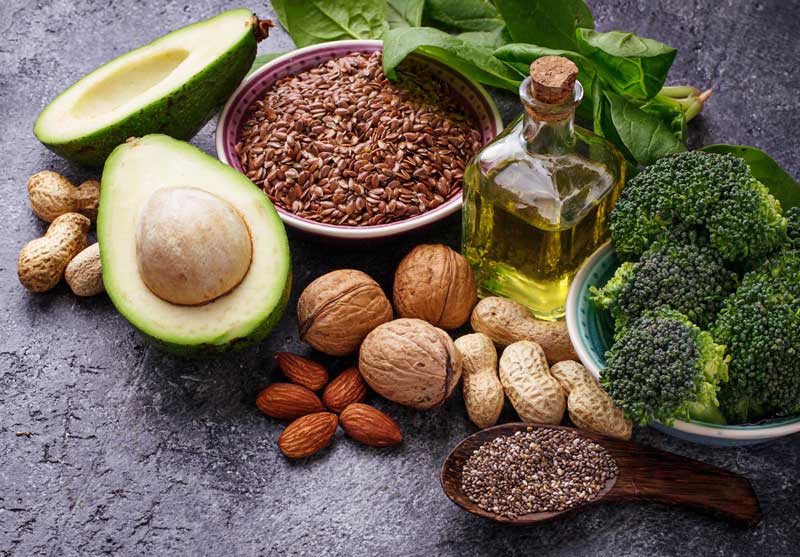Home » Fighting Falsehoods » The Ketogenic Diet is a Cure for Type 2 Diabetes
The Ketogenic Diet is a Cure for Type 2 Diabetes
Yes, people with type 2 diabetes have insulin insensitivity, meaning their bodies do not properly absorb and utilize glucose.
No, the ketogenic diet has not been proven as a cure for type 2 diabetes, especially given its potential long term effects on overall health.
Yes, people with type 2 diabetes should monitor their sugar intake (including carbohydrates). They should also monitor their saturated fat intake, which can increase cholesterol and worsen type two diabetes and its symptoms.

Some Fundamental Truths
Keto is basically a cure-all diet that lets you eat bacon soaked in butter and dipped in cheese, right? Sorry, but wrong. Currently, there are no randomized clinical trials lasting longer than a year that study the effects of the ketogenic diet on overall health. The majority of these studies are also often sponsored by industry.
But carbohydrates make you fat, right? Wrong. As a society, we have vilified carbohydrates the same way we once vilified fats, which was essentially the start of our obesity epidemic. Fats are not a villain, and neither are carbohydrates; processed products parading themselves as food, and extreme quick-fix diets, may be.
So which do you eat, Carbs of Fats? We eat foods, not macronutrients, and not all foods are created equal. Eating a muffin is not the same as eating oats, and eating bacon is not the same as eating an avocado. And if you have type 2 diabetes, you may want to think of foods a bit differently than a person without type 2 diabetes.
What Should I Eat, Though?
Fiber is your friend. High-fiber foods can lower cholesterol, control blood sugar levels and promote weight loss by helping you feel fuller longer and offering more nutrients for less calories.
Eat: vegetables, the greener, the better; nuts and seeds, beans and legumes, whole grains.
Don’t Eat: refined grains, processed foods, breakfast cereals, “fat-free” labeled foods, sugary yogurts, fried foods-a potato and a french fry are not the same food.
Fat is okay. If it’s the right fat. Saturated fats have been linked to increased risk for all cause mortality, particularly cardiovascular disease, which is of particular concern for people with type 2 diabetes. Mono- and polyunsaturated fats can potentially increase cardiovascular health and lower your risk for all-cause mortality.
Eat: sardines, arctic char, anchovies, nuts, avocados, olives, chia seeds, flax seeds
Don’t eat: processed meat, margarine and other foods with trans fats.
Limit: red meat
What about Fruit? Definitively, eating whole fruit is vastly different than consuming added fructose. Yes, fruit is a healthy food. That being said, if you are someone who has a glucose intolerance (type 2 diabetes) you may want to eat some fruits and limit others. Certain fruits have a lower glycemic index than others, and are a better choice if you have diabetes,
Eat: berries, cherries, grapefruit, pears, apples, plums, and nectarine.
Limit: mangos, pineapple, cantaloupe, and watermelon.
Avoid: dried fruit
If this diabetes diet seeming a lot like a basic healthy diet, that’s because it is. We eat food, not macronutrients, and the best diet for diabetes is essentially the best diet for overall health, with some minor adjustments. Food pairings also matter when insulin is involved. Pairing an apple with a handful of almonds can keep insulin blood sugar levels in check. When it comes to managing and potentially reversing type 2 diabetes, balance is key, and healthful foods reign supreme.
Resources and references:
https://www.ncbi.nlm.nih.gov/pubmed/25246449
https://www.ncbi.nlm.nih.gov/pubmed/23372809
http://clinchem.aaccjnls.org/content/64/1/34.abstract
https://www.heart.org/en/healthy-living/healthy-eating/eat-smart/fats

